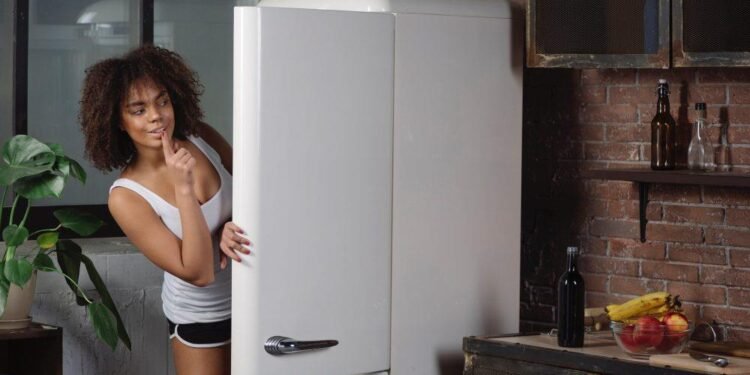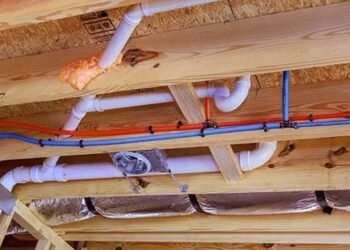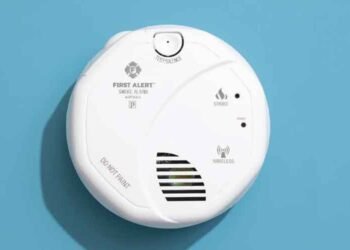Is your refrigerator running as smoothly as it should, or are you noticing some strange sounds, odors, or temperature fluctuations?
The refrigerator is one of the hardest-working appliances in your kitchen, and with proper care, it can last for years. If you’re in San Jose, where the weather can vary from hot summers to cooler winters, keeping your fridge in top shape is essential. So, how do you make sure your refrigerator lasts longer?
Let’s dive into some smart tips for extending the life of your refrigerator and keeping it in peak condition.
Why Is Regular Maintenance Important?
Before we dive into the tips, it’s crucial to understand why regular maintenance is so important. Over time, dust, dirt, and grime can accumulate, affecting the efficiency of your refrigerator. This can lead to higher energy bills, more frequent repairs, and a shorter lifespan for your fridge. By implementing a few simple habits and being proactive with maintenance, you can prevent costly repairs and extend the life of your fridge by several years.
1. Keep the Coils Clean
The condenser coils on the back or underneath your refrigerator play a vital role in cooling the appliance. When these coils get dirty, the fridge has to work harder, leading to higher energy consumption and potentially overheating. In hot climates like San Jose, this is even more important. If you’re unsure about cleaning the coils or need professional help, you can reach out to experts like those at https://www.top-appliance-repair.com/san-jose-appliance-repair/ who can assist with refrigerator maintenance and ensure your appliance runs smoothly.
To clean the coils:
- Unplug the fridge for safety.
- Use a vacuum or a coil brush to remove dust and dirt.
- Clean the coils at least once every six months, or more frequently if you have pets or live in a dustier area.
By keeping the coils clean, you help your fridge run more efficiently, saving energy and extending its life.
2. Check and Replace Door Seals
One of the most common causes of a refrigerator running inefficiently is worn-out or damaged door seals. If the seals are cracked or dirty, cold air can escape, forcing your fridge to work harder to maintain the right temperature. This not only wastes energy but can lead to food spoilage.
To check the seals:
- Close the refrigerator door on a piece of paper or a dollar bill.
- Try to pull the paper out. If it slides out easily, the seals need replacement.
- Wipe the seals clean with warm, soapy water, and dry them thoroughly to maintain a good seal.
3. Set the Right Temperature
Did you know that setting your fridge at the right temperature can improve its performance and energy efficiency? In San Jose, where temperatures can fluctuate throughout the year, it’s essential to adjust your fridge’s thermostat accordingly.
The optimal temperature for your refrigerator is around 37°F (3°C), and for the freezer, it should be 0°F (-18°C). A fridge set too low can cause food to freeze, while a higher setting can cause food to spoil quickly.
By keeping your fridge at the right temperature, you help it run smoothly and keep your food fresh for longer.
4. Avoid Overloading Your Refrigerator
It’s tempting to pack your fridge to the brim, especially when you have guests or are stocking up for the week. However, overloading the fridge can restrict airflow, forcing it to work harder to cool the contents. This can lead to unnecessary strain on the compressor and decrease the appliance’s efficiency.
To prevent overloading:
- Make sure there’s enough space between items for air to circulate.
- Organize items so that cool air can flow easily around them.
- Avoid putting hot food directly in the fridge. Let it cool to room temperature first.
5. Keep the Fridge Clean Inside and Out
Just like the outside, the interior of your refrigerator needs regular cleaning to maintain efficiency and avoid odors. Spills, crumbs, and expired food can affect the performance of your fridge and cause unpleasant smells.
To clean the inside:
- Wipe shelves and drawers with a mixture of warm water and baking soda to remove stains and odors.
- Clean up spills immediately to prevent them from sticking and creating a mess.
- Check expiration dates regularly and toss out anything that’s gone bad.
6. Use the Right Storage Containers
The way you store food inside your fridge matters more than you might think. If food is stored improperly, it can lead to spills, spoilage, and wasted energy. Use airtight containers to store leftovers, fruits, and vegetables, and avoid placing them in plastic bags or wrappings that can cause moisture buildup.
Storage tips:
- Store raw meat on the bottom shelf to prevent cross-contamination.
- Keep dairy products and eggs on the middle shelves where the temperature is consistent.
- Store fruits and vegetables in separate drawers to maintain their freshness.
7. Check the Drain Pan Regularly
Most modern refrigerators come with a drain pan that collects excess water from defrosting. Over time, this pan can get dirty or even collect mold, affecting your fridge’s operation. In San Jose, where humidity levels can vary, it’s a good idea to check the pan every couple of months.
To clean the drain pan:
- Unplug the fridge and locate the pan, typically at the bottom.
- Empty any water and clean the pan with warm water and soap.
- Allow the pan to dry completely before placing it back.
8. Don’t Block the Air Vents
Refrigerators have air vents that allow for the proper circulation of cool air. Blocking these vents can cause uneven cooling and strain the compressor. Be mindful of how you organize items inside your fridge to avoid blocking the vents.
9. Place Your Refrigerator in the Right Spot
The location of your refrigerator is just as important as its internal components. In San Jose, where summers can be hot, placing your fridge in a spot that’s too close to a heat source—like an oven, dishwasher, or direct sunlight—can force it to work harder to maintain a cool temperature.
To optimize fridge performance:
- Place the fridge in a cool, dry area away from heat sources.
- Ensure there’s at least a few inches of space around the fridge for airflow.
10. Schedule Regular Professional Maintenance
While you can do many maintenance tasks yourself, there’s no substitute for a professional check-up. Having a technician inspect your fridge every couple of years can help spot issues before they turn into costly repairs.
Table: Common Refrigerator Issues and Solutions
| Issue | Possible Cause | Solution |
| The fridge not cooling properly | Dirty condenser coils | Clean coils and ensure good airflow |
| Ice buildup in the freezer | The defrost drain is clogged | Clear the drain and check the fan |
| Water leakage | Damaged door seals | Replace seals or clean them properly |
| Unusual noises | Loose or faulty fan | Inspect or replace the fan |
| Fridge runs constantly | Incorrect temperature setting | Adjust the thermostat or clean the condenser coils |
Last Note
By following these smart tips for maintaining your refrigerator in San Jose, you’ll not only extend its lifespan but also improve its energy efficiency, saving money on your energy bills. Regular cleaning, checking seals, and setting the right temperature are simple steps that make a big difference. And don’t forget to schedule professional maintenance to ensure your fridge is in tip-top shape for years to come.












